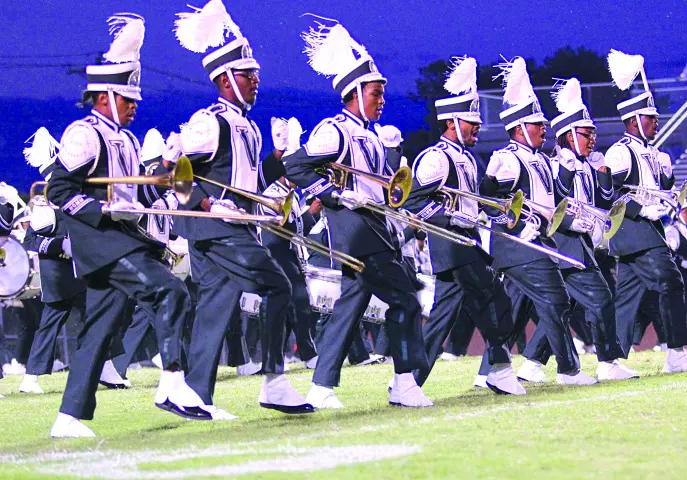The Mississippi Valley State University marching band, the “Mean Green Marching Machine,” is being criticized for accepting an invitation to participate in the 60th Presidential Inauguration Parade for President Donald Trump on Jan. 20, 2025. MVSU’s president, Dr. Jerryl Briggs, hailed the opportunity as a “once-in-a-lifetime experience” that would bring pride to the university and the state of Mississippi.
With the estimated cost of attendance reaching $350,000—covering travel, accommodations, meals, and equipment transport—the band has launched a GoFundMe campaign to raise the necessary funds. The 250-member band highlighted its rich history, performing at notable events, including the Rose Bowl and NBA games. They made history as the first HBCU band to march in the Tournament of Roses Parade in 1965. They also played at President Nixon’s inauguration in 1968.

Conflicting Reactions
Despite the excitement, not all reactions have been positive. Critics argue that participating in the parade supports an administration that has marginalized HBCUs and perpetuated racism and division.
“Mississippi Valley deciding to join that orange man in DC was a choice & poor one. They from the Blackest most historical state in the union and they decide to be obtuse. I hope you don’t raise a penny, because being willfully ignorant is not a flex. It’s actually coonary,” @jaesofamous posted on X.
Mississippi Valley State University @MVSUDEVILS has a proud history of standing up for Black history, equity, and justice. However, accepting an invitation to perform at Donald Trump’s presidential inauguration on Martin Luther King Jr. Day is a disgraceful betrayal of that… pic.twitter.com/kOzctXXY7Y
— Bishop Talbert Swan (@TalbertSwan) December 28, 2024
However, supporters of the band’s participation contend that an inaugural parade is a celebration of American music and culture, part of HBCU traditions in Republican parades.
An inaugural parade is just that—a parade. It’s an honor for any band to participate in this celebration of American music and pageantry. HBCUs have known this for decades and are no strangers to marching in Republican parades. Check the receipts ⬇️
— Danny D. Glover (@DannyDGlover) December 27, 2024
Ronald Reagan (1981)
Florida…
One commenter expressed outrage about that argument, calling out Trump’s legacy as “an administration that threatens the existence of HBCUs, freedom, health, and existence of those that are already disenfranchised,” while another highlighted past disrespectful remarks made by Trump.
No it’s an inaugurations of an administration that threatens the existence of HBCUs, freedom, health, and existence of those that are already disenfranchised. Sympathizing and normalizing racism and facism is an even bigger problem. Go all the way to hell!
— Dr. KaNisha L. Hall (@DrKanisha) December 27, 2024
After every disrespectful, insensitive, and offensive things this man has said about us but, we’re doin’ too much?!!! 😒😒😒 There’s ALWAYS goin’ to be an Uncle Tom hiding in this community. 🤦🏾♀️🤦🏾♀️🤦🏾♀️
— Annette Williams 🤓 (@ShaunLuvsBooks) December 28, 2024
MVSU is improving its band hall to enhance practice facilities while preparing for the event. As fundraising efforts continue, Mississippi Valley State navigates the contrasting opinions surrounding its participation in the inauguration. They find themselves at a crossroads of tradition, pride, and the complexities of political identity.




